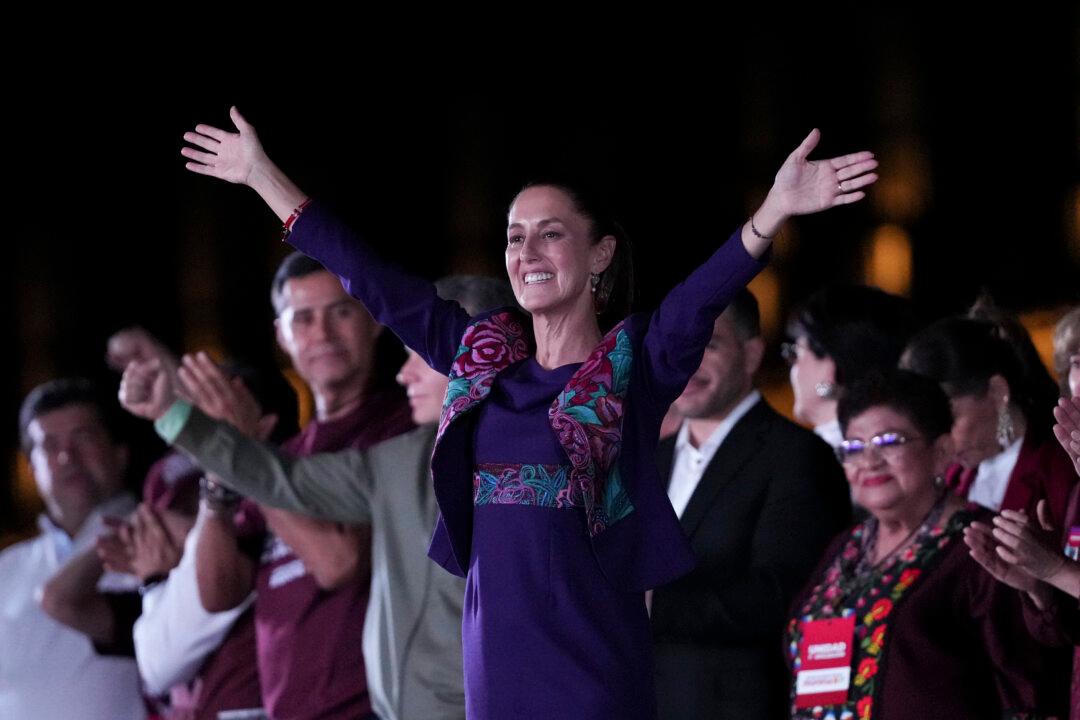MEXICO CITY—Mexico’s projected presidential winner Claudia Sheinbaum will become the first female president in the country’s 200-year history.
“I will become the first female president of Mexico,” Ms. Sheinbaum said with a smile, speaking at a downtown hotel shortly after electoral authorities announced a statistical sample showed she held an irreversible lead. “I don’t make it alone. We’ve all made it, with our heroines who gave us our homeland, with our mothers, our daughters, and our granddaughters.”





